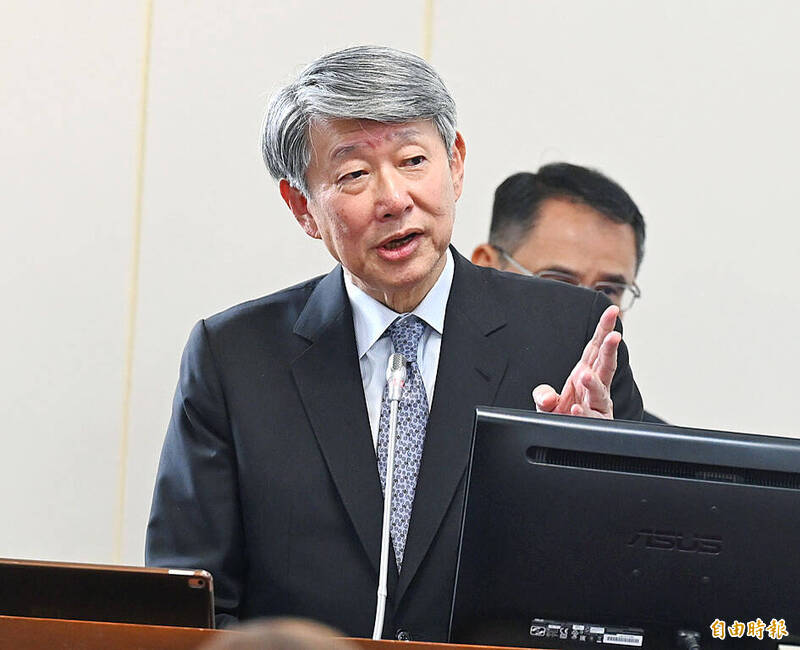《TAIPEI TIMES》 Deal inked with industry to recruit foreign AI experts

Minister of Economic Affairs J.W. Kuo speaks at the legislature’s Economics Committee yesterday. Photo: Wang Yi-sung, Taipei Times
By Liao Chia-lin and Jonathan Chin / Staff reporter, with staff writer
Taiwan has reached an agreement with industry giants to recruit foreign experts in artificial intelligence (AI) to address a human resources issue in the sector, Minister of Economic Affairs J.W. Kuo (郭智輝) told a meeting of the legislature’s Economics Committee in Taipei yesterday.
Democratic Progressive Party (DPP) Legislator Chiu Yi-ying (邱議瑩) asked officials to detail the government’s plan to create a skilled workforce big enough to meet industry demand.
The nation does not have enough workers with the skills the AI sector needs, especially those who train or tune large language models, Kuo said during a question-and-answer session.
Taiwan and industry giants, including Nvidia, discussed the matter and reached an agreement that guarantees Nvidia that at least half of its new hires for such roles would be foreign nationals, he said.
Under the deal, Nvidia is to employ 500 foreign nationals out of its planned workforce of 1,000 engineers to be tasked with chip, system, software and AI design, he said.
Deputy Minister of Education Yeh Ping-cheng (葉丙成) said that creating a workforce for the AI industry has been the ministry’s priority for many years.
The government created 13 research academies, five of which are focused on AI, with 972 people graduating with a master’s or doctoral degrees in AI annually, he said.
Regarding secondary education, Yeh said his ministry plans to unveil the digital education guidelines 3.0 in October.
The new version of the educators’ manual, which would involve principals, teachers and parents in teaching children about AI and information technology, could be implemented as soon as the second semester of this academic year, he said.
The Ministry of Education is considering creating online-based courses for technical subjects, including AI, that high schools might not be equipped to teach, Yeh said.
The plan, dubbed “central kitchen,” would be implemented with the assistance of teachers specializing in information technology education, he said.
Earlier, Chiu said that Taiwan’s leadership in the tech industry rests on advanced semiconductor and AI server manufacturing, not chip design or generative AI.
This deficiency is due to the lack of workers with skills relevant to AI development, Chiu said, adding that the government’s AI plans require within four years a 200,000-strong workforce trained in the appropriate fields.
The Ministry of Economic Affairs should clarify its plan to furnish the projected number of highly skilled workers needed to develop an AI industry, she said.
The Ministry of Education should address its policy on secondary and higher education toward preparing the next generation of Taiwanese for a digital and tech-centric economy, she added.
South Korea is expected to roll out digital technology textbooks for high-school students next year, she said.
新聞來源:TAIPEI TIMES



















